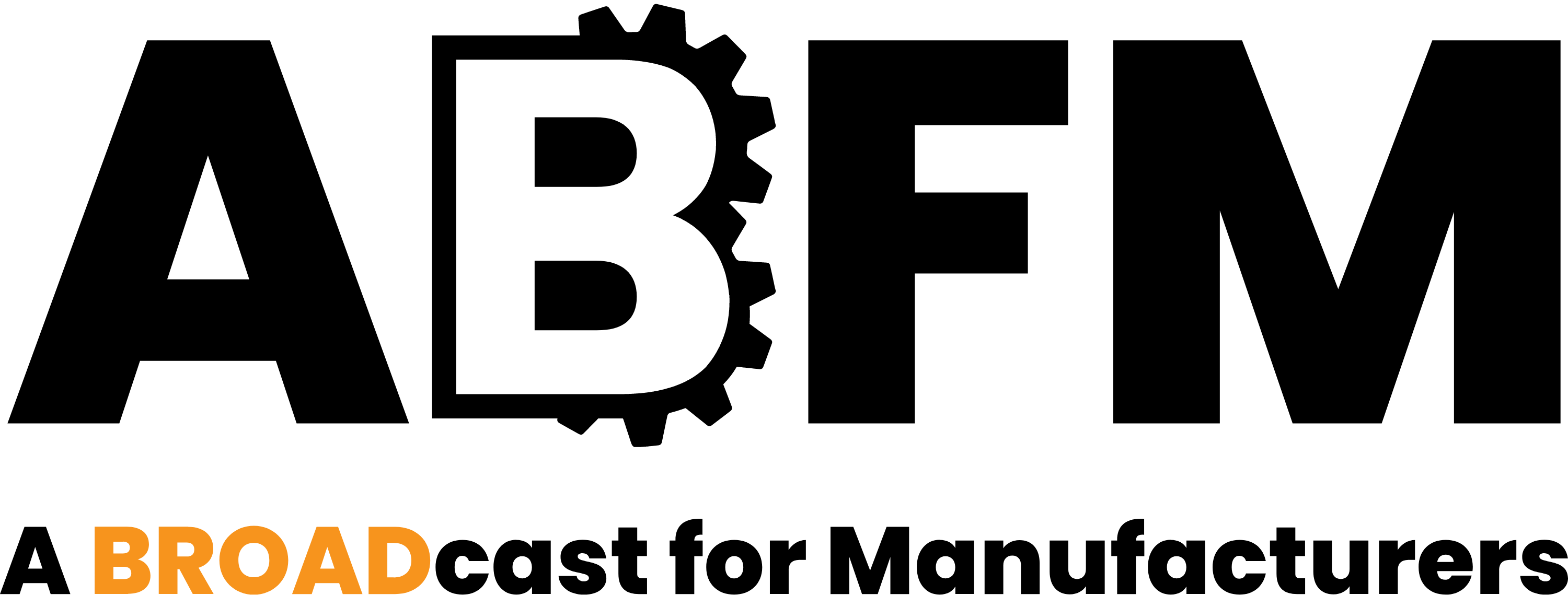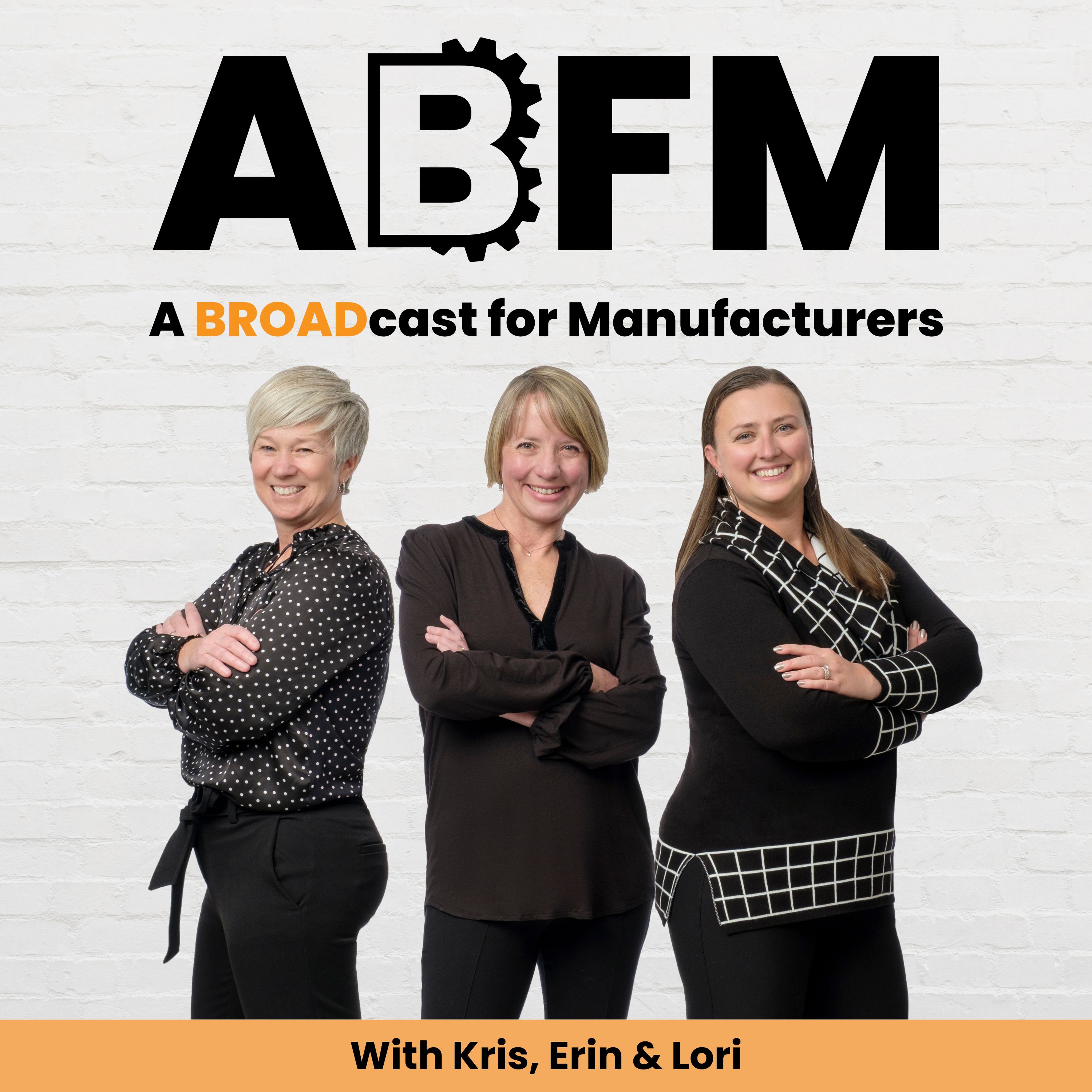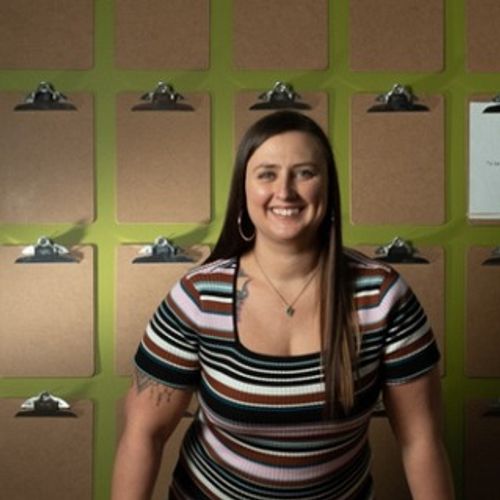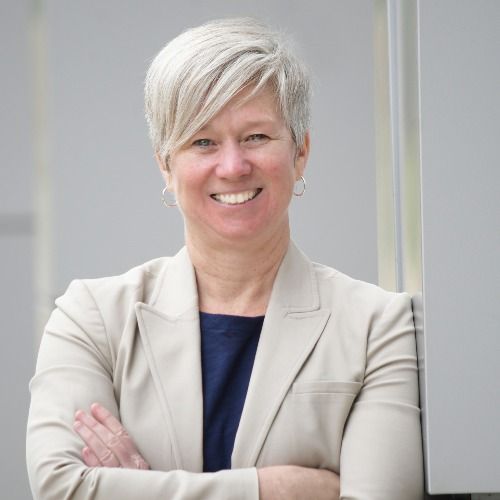Episode 37
37: The Importance of Diversity in Engineering- with Dayna Johnson
Meet Dayna Johnson
Dayna Johnson is the Emerging Technology Programs and Operations Leader at GE Gas Power. She joined GE in 2012 as a commercial manager for high-voltage electrical substations and has held a variety of roles since then, including participating in the Accelerated Leadership Program. Prior to GE, she worked as a civil engineer, designing water and wastewater projects.
She holds a BS in Civil Engineering and a Master of Engineering Management from Valparaiso University, and she is a licensed professional engineer. She is also the immediate past president of the Society of Women Engineers.
What's the importance of diversity in this space?
We're sad that it's still not very common to have women engineers. And despite the fact that The Society of Women Engineers has been around for decades, we still are struggling to get women interested and excited in it. When we talk about what value diversity brings, you can go to all of the studies and say, “Oh, companies that have diverse boards, companies that have diverse fill-in-the-blank, have higher ROIs, they have better metrics.” Put all that aside.
Let's just peel back the onion and talk about this at a big level. When we start talking about things like getting a design team together and coming up with requirements. The example I always use, which is a little grim is crash test dummies designed to the average male height, size, et cetera, as a result, women are more likely to be seriously injured or killed in car accidents. But that's like worst-case scenario. It can be when you talk about a group of laborers using gardening tools. They had a left-handed person who struggled to use the tool because it was made for a person who was right-handed.
So when we talk diversity, it's not just gender or what you look like. So I think when I think about it as an engineer, way bigger than just pushing diversity for the sake of pushing it because it really truly makes our outcomes better and our products better.
What struggles do women experience in this industry?
Yeah. One of the big ones I think is just the bias, right?
I'll be frank, right? My first job was very old school dealing with utilities, dealing with the good old boys club. For lack of a better phrase, the old white guys, and their bias was to have people that look like them around. It's those barriers, right?
How do you figure out the ways that you can help people see that they can be there? How do you help people understand that? I think it's really hard for women to really be seen in some of the biases out there. People can Google and learn about the tightrope bias of how to not go too far one way or the other.
There are all sorts of issues with women who want to be a strong, confident woman. And so they act the way a man would. That doesn't really work the same in the industry, right? You get penalized for acting like a man would.
Bias is one huge aspect, but you look across and this has been a very male-dominated field. And we talk about things like walking the shop floor. If you're on a job site, these are things that society hasn’t designed for women to be able to fit right into. So, when we talk about jobs where heavy lifting is required, you can say what you want, but stereotypically women can't lift as much as men. Or if we talk about even just being on the shop floor, safety gear is not as easy to find. So, when I was out in the field, out of college, I was trying to find long underwear because construction happens during the winter, right? Yeah. Women's long underwear is not created equal.
And so much more…
Connect with Dayna!
Connect with the broads!
Connect with Erin on LinkedIn for web-based solutions to your complex business problems!
Connect with Lori on LinkedIn and visit www.keystoneclick.com for your strategic digital marketing needs!
Connect with Kris on LinkedIn and visit www.genalpha.com for OEM and aftermarket digital solutions!
Transcript
You want to learn more about your hosts? Make sure to listen to episode one.
[:[00:00:59] Kris: What's [00:01:00] coming. What's starting?
[:[00:01:18] Kris: Well, since you're just calling it football, I have to say, you know, I'm a huge women's soccer fan and we often call them women footballers. So you know, I think though we're talking about the NFL.
[:[00:01:35] Kris: Exactly. I knew you would give me a response that I was looking for.
[:[00:01:49] Kris: Yeah. So I'm, I am an NFL fan of the Green Bay Packers, of course being from Wisconsin. So yes I will be [00:02:00] watching and we have a new quarterback. Well, not new, but new that we'll be playing more frequently and it's, I think it's going to be a very different season for us and I'm just really excited to see all that will come. How about you?
[:So yes, yes. And, and, you know, Aaron Rogers, we could spend a long time talking about him, but I think it's just fine that he moved on, but I think that's just fine. And yeah, but for me growing up, I grew up in New Mexico and. It was kind of like you could be into the Dallas Cowboys. That was an option, or you could just pick any team, you know, that all, and just call them your team. So my grandma said she liked the Bengals, the Cincinnati Bengals because of their outfits. And I was like, good, they're my favorite team too, grandma. So that's about it.
[:[00:03:07] Erin: Yes, and they should.
[:hell for that.
[:I can't think of any other team where there's more sort of like. You know, there's a lot going on with that. I did go to a game. I did go to a game once and I was mostly just Enchanted by the cheerleaders. I have to say they have they they they're very talented Athletic yes athletes. All right. Oh my gosh.
oday, and I am so excited to [:Awesome. Thank you. Thank you. Prior to GE, she worked as a civil engineer, designing water and wastewater projects. Dayna holds a BS in civil engineering and a master of engineering management from Valparaiso. So she might have something to say about football and she is a licensed professional engineer.
She is also the immediate past president of the society of women engineers. Give it up for Dayna.
[:[00:05:19] Erin: 100 percent correct. And that's what keeps me in the game.
So to speak, sometimes my husband went to Oregon or whatever they call it. I know that it's University of Oregon, but whatever the 1 with the fancy outfits because of the Nike thing, I have to say their outfits are incredible. If you ever have a chance to check it out. Okay, great, great, great. Excellent pants for your sister, so getting back to business.
had terrible football team. [:[00:06:22] Dayna: Yeah, it's. We're sad that it's still not very common to have women engineers. And despite the fact that, right, the society of women engineers has been around for decades, we still are struggling to get women interested and excited in. Important, right, Aaron, to your point, when we talk about what value diversity brings, you can go to all of the studies and say, Oh, companies that have diverse boards, companies that have diverse fill in the blank, have higher ROIs, they have better metrics, put all that aside.
ut this at a big level. When [:Whoa.
[:[00:07:23] Dayna: Oh, you haven't. Oh, it's super sad. But, but that's like worst case scenario can go, you know, when you talk about there's a situation where. A group of laborers was using like hand tools, gardening tools or whatever. And they had a, a left handed person who struggled to use the tool because it was made for a person who was right handed.
were left handed. You would [:So I think it, you know, when I think about it as an engineer, way bigger than just pushing diversity for the sake of pushing it because it really truly make our outcomes better and our products and be. Better yeah, absolutely.
[:So, keeping those doors open is. Good for the, for the companies and for the employers, obviously, but, you know, I, I'm just, I can see you cause we're, we're on a zoom call and you look like a really happy person. I think it worked out for you to pursue engineering as a career. And I hope for that for every girl and woman that they [00:09:00] would be able to do that.
Amen.
[:And you know, I. Can't be what you can't see. And if I can't see my in leadership at a company or on a project site I'm at, I struggle to say, okay, I'm going to fit in here. Now I've gotten over that over the last couple of decades of being a professional, but it's hard when you're early in your career to step foot on a job site and say, oh, I belong here when nobody else looks like you.
Yeah,
[:Well, you know, I don't want to have to have all the courage all the time to be the one, you know, not everybody wants to, to fight through that. So, you know, as we think about that, what are some of the struggles that women experience in the industry?
[:When we talk about going to, and I'll be frank, right? My first job was very old school dealing with utilities, dealing with the good old boys club, right? The old, for lack of a better phrase, the old white guys and their bias was to, to have people that look like them around. It's those barriers, right?
e out the ways that you can. [:There's all sorts of issues with women who let's say they, they want to be a strong, confident woman. And so they act the way a man would, and that doesn't really same in industry, right? You, you get penalized for acting. I would hard, I think balancing that when you look across engineering, though, right?
a job site, these are things [:I mean, can't lift as much as men, or if we talk about even just being on the shop floor, safety gear is not as easy to find. So I, when I was out in the field, out of college, I was trying to find long underwear because construction happens during the winter, right? Yeah. Women's long underwear, not created equal.
I'll just put it that way. Okay.
[:What's what's going better? What's working? Well, what are some of the changes that you've seen that make it a more comfortable place? And by the way, I want to say, it's not just about being comfortable. It's about knowing that you can be your best self and not have to expend energy in other directions.
And, and so what are some of the things that you've seen
[:has been the Call it the construction and safety gear. Now I can't speak to the long underwear. I don't know if we've come far enough the last couple of decades since I was out in the field, but work boots, steel toed boots. When I was out in the field, I, and I have, because that's where I could easily find.
ke like semi cute steel toes [:You see this, right? They just fit your waist and other areas a little better. So I think he finally got it without me getting too graphic, but, but they make safety vests for women now. And I think I've even seen that they make safety vests for women. Right. That adds another whole dimension of how do you stay safe or how do you go out and do your job when you're pregnant?
that we experienced. And so [:But once you've got some of those allies that can really help in the decision makers around them, I think it starts to get a little bit easier. So it's. Bloom, I promise. It's just we're not. And I, I do truly hope that within this next let's say generation, we start seeing those women really breaking glass barriers, right?
Look at Mary Barra, the CEO of GM. I think when you've got such an engineering heavy company like GM with a woman at the helm. That's going to really influence the girls that are coming up now. So as that happens, I think we're really going to see some, some traction for more representation. And I hope it, I really do truly hope it goes beyond just women.
Obviously this is, this is a bunch of women here talking today and I do care a lot about that, but I. Beyond that,
[:[00:15:59] Kris: no, [00:16:00] I love that. You just said that, you know, inclusion of other areas is so important. It goes beyond women. There's just so much still to catch up on when it comes to women. And I really love that you mentioned allies too, because I think that, you know, I think about the organization, like women in manufacturing right where.
Not only women are involved in that, that organization, but also allies. And so men are invited to join as well and be part of the conversation. I think awareness is taking place in areas because of discussions like you're, we're having right now. And with awareness comes new knowledge and the willingness to try different things to ask different questions and so on.
So thank you for sharing that.
[:[00:16:59] Kris: Yes. [00:17:00] Absolutely.
[:I, I'm so value your experience and what it means not only for, you know, the future of young women, but for the industry as a whole, like more diversity, more brains solving problems. That's a win win. And, and that's what we say always on this show. It's not just about, you know, changing the face of an industry.
It's about helping the entire, lifting up the entire industry through diversity and through including more great people in the work. So thank you. Thank you for, for coming on the show today. I think you might be familiar with what's coming up. This is one of our favorite pieces. This is something. Well, I just learned that.
something about astrology or [:[00:18:08] Kris: Yeah. So, I mean, in our last recorded episodes, I talked about avocados. So this time I thought I better focus in something related to manufacturing. So I had gone out to the National Association of Manufacturers website and looked for some facts and I thought it would be fun because we haven't really shared any recent facts about manufacturing in some episodes lately.
:[00:18:48] Erin: Big numbers. Yeah.
[:I don't have the size or, you know, number of employees or revenues, but they are, they are small. And I think as we all kind of focus in manufacturing, we know that it, when you're speaking to a small manufacturer, a mid-tier manufacturer, a large it, it can be a very different conversation on what their needs are and what their challenges are as well.
million workers in July of:benefits and wow, so 91%. So if healthcare is something that concerns you, manufacturing is a great place to be. [00:20:00] And I'll just end on this fact, cause I think it's an important one as we're trying to highlight this in this kind of diversity episode, there were 582, 000. Manufacturing job openings in June of 2023.
So if you're looking for a good paying job with great benefits, and, you know, you haven't considered manufacturing in the past, this could be the sector for you. And I would encourage people to look at those openings and really think about it.
[:Should you be interested as a woman?
[:[00:20:40] Kris: You'll be styling today.
[:[00:20:47] Dayna: Oh, I'm going to do a shameless plug. There's a company called Xena X E N A. Okay. And I, I'm going to screw up because if you Google it, you get. Princess or whatever, but go, go Google [00:21:00] and check out some of the boots they have.
They're adorable. Yeah. Perfect.
[:It was this article about, like, the history of pudding and. But it's the chemistry. Now here, Dana, this is going to be your wheelhouse a little bit more, so bear with me. That was really interesting. So the cornstarch, what happens is there's all these little bonds happening within the cornstarch, those little granules, and as you heat it up, And cook it, those break apart, and that's what starts to create this sort of gelan, it's I think gelanitization or something that [00:22:00] happens and while you're heating it and stirring it.
And then it said what's really important is that you leave it alone and let it cool. On its own, because those bonds that broke apart when the corn starch was, you know, turning into goo reform, but in a more open sort of a network, and then that's what turns into pudding. And I just was super fascinating.
[:[00:22:40] Erin: I'm going to work on that. I'm going to get a whole list.
[:[00:22:48] Dayna: Oh, I feel for the first.
[:[00:22:54] Dayna: How about you have plenty of claim to fame in my life. I don't know if gelatinous was ever one that was on my list, but I do [00:23:00] put
[:[00:23:02] Dayna: Well, I do feel a little intimidated after all of Chris's data to manufacturing. So I do feel like I've got plug in.
Officially talked about it in:It just learned though. So I've, I've got two dogs and I think I was able to mute fast enough before a dog went walking past the window here. I have two dogs and they have both now torn their canine cruciate ligament. So it's, I'm sure if you've got anybody listening that is in the dog knee expertise arena, they would tell me that this is probably not completely accurate.
But it's kind of like the dog ACL.
[:[00:23:57] Dayna: Essentially if you, if you tear one, [00:24:00] there's a 50, 50 chance that that dog's going to tear the other. So I've got one dog that has only torn one so far, knock on wood. And I have another dog who has just gone through his second CCL surgery.
Oh,
[:there they are. They are there.
[:Just myself will have carried this dog up and downstairs for about a quarter of this year. Wow. Wow. And you heard him most likely he's not a small dog.
[:[00:24:53] Kris: Those earlier facts about women can't lift certain things. Obviously you're proving everybody wrong [00:25:00] right now.
So
[:[00:25:18] Dayna: Absolutely. The easiest way I would say is on LinkedIn and. I don't know. I don't recall what level of advertising goes out, but I'm Dana with a y so you should search for D A Y N a regular old Johnson. I think that's the the bonus. When I got married, I got an easy last name to offset the Y in the first name.
with a Y johnson out there. [:[00:26:06] Erin: Perfect. And just so you know, we'll have that in the show notes too. So people can, if they're feeling nervous about how to. Spell your name. They can go to the show notes and that would be great.
Wonderful. Well, thank you so much. And we look forward to following your amazing career and I best wishes for those puppies. I know it's hard to see your babies get hurt. But it sounds like they're going to recover under the loving care of their mom.
[:[00:26:44] Erin: But they don't really need it. That's, that's how they develop independence and go out on their own. You know, the dog has to stay with you.
[:[00:26:55] Dayna: Right. I'm logging that excuse away.[00:27:00]
[:[00:27:08] Dayna: It's been a blast.
[:[00:27:17] Announcer: This wraps up today's broadcast. If you're looking to shake up the status quo at your organization, or just want to connect with these broads, visit mfgbroadcasts. com. Contact Lori Highby for your strategic digital marketing initiatives. Contact Kris Harrington for OEM and aftermarket digital solutions. And contact Erin Courtenay for web-based solutions for your complex business. Business problems. We've got a great offer specifically for our listeners. You can find more information about the offers and your hosts at mfgbroadcast. com.[00:28:00]




